Built in the 1850s, the pub was originally called The Reeds Arms before its long stint as the Queen’s Hotel. The arms which gave the hotel its name are those of George Reed, once Burnham’s leading citizen. The sunblinds over the front windows bear the words Reed’s Arms, although a large ‘Queen’s Hotel’ sign hangs by the entrance.
An illustration and text about The Reeds Arms.
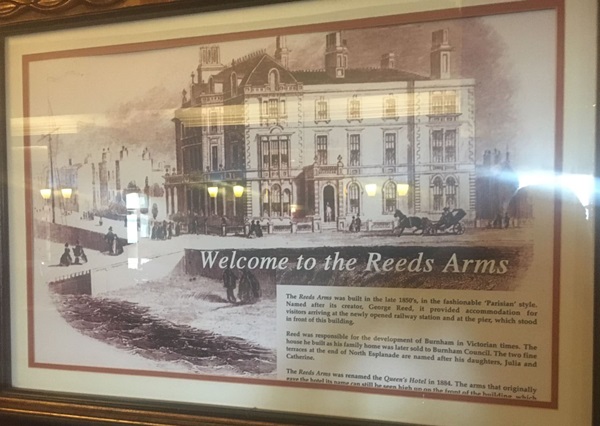
The text reads: The Reeds Arms was built in the late 1850s, in the fashionable Parisian style. Named after its creator, George Reed, it provided accommodation for visitors arriving at the newly opened railway station and at the pier, which stood in front of this building.
Reed was responsible for the development of Burnham in Victorian times. The house he built as his family home was later sold to Burnham Council. The two fine terraces at the end of North Esplanade are named after his daughters Julia and Catherine.
The Reeds Arms was renamed The Queen’s Hotel in 1884. The arms that originally gave the hotel its name can still be seen high up on the front of the building.
A photograph and text about Burnham’s lighthouse and the RNLI.
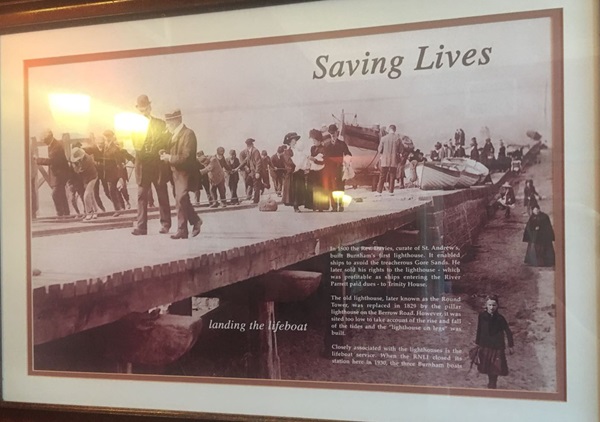
The text reads: In 1800 the Rev. Davies, curate of St Andrew’s, built Burnham’s first lighthouse. It enabled ships to avoid the treacherous Gore Sands. He later sold his rights to the lighthouse – which was profitable as ships entering the River Parrett paid dues – to Trinity House.
The old lighthouse, later known as the Round Tower, was replaced in 1829 by the pillar lighthouse on the Berrow Road. However, it was sited too low to take account of the rise and fall of the tides and the ‘lighthouse on legs’ was built.
Closely associated with the lighthouses is the lifeboat service. When the RNLI closed its station here in 1930, the three Burnham boats.
A photograph of The Queen’s Hotel.
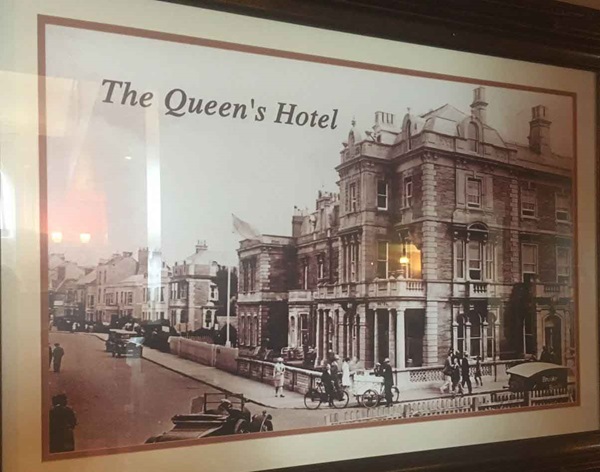
A photograph of George Reed’s House.
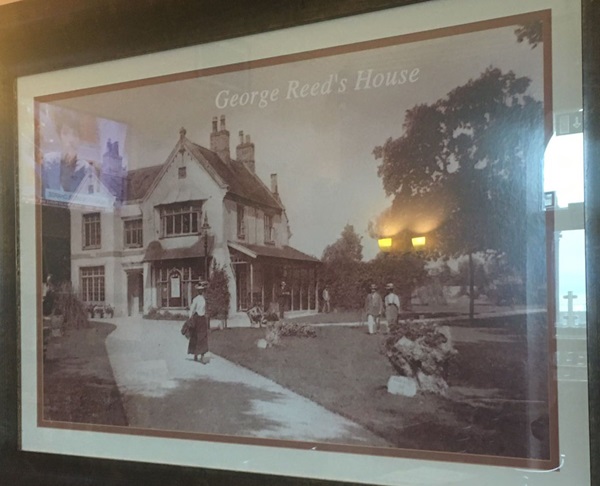
A photograph of the bathing lake with The Queen’s Hotel in the background.
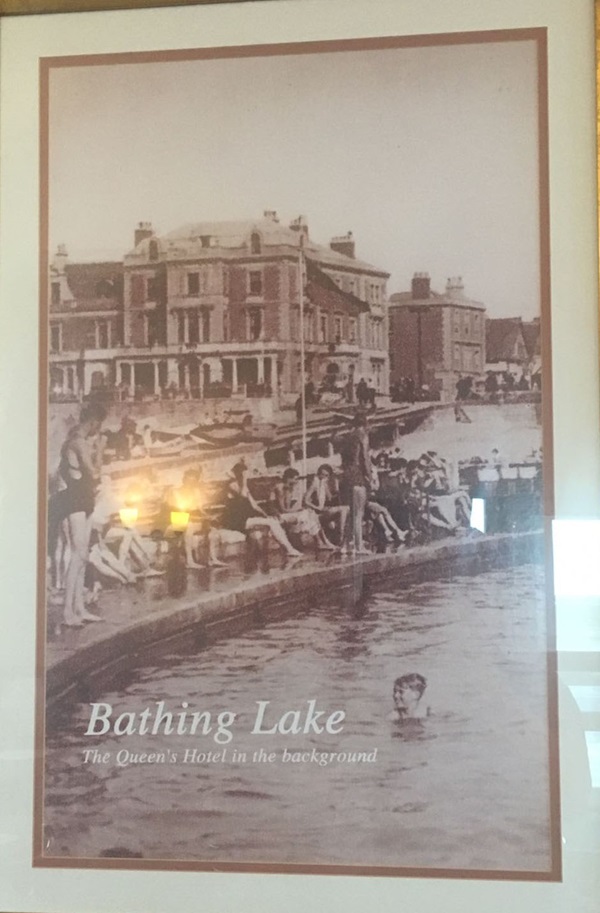
A photograph of the lifeboat launching outside The Queen’s Hotel.
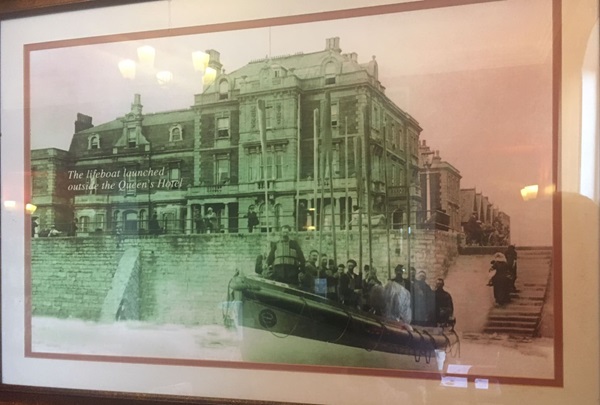
External photograph of the building – main entrance.
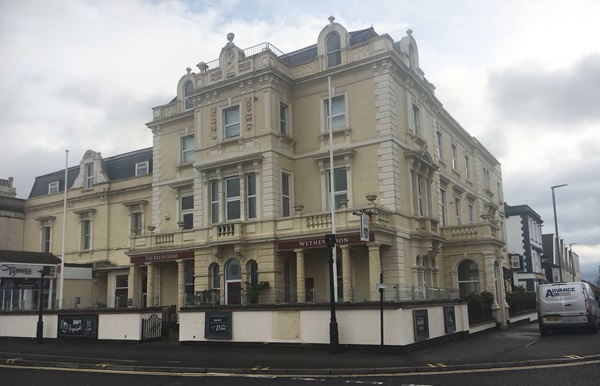
If you have information on the history of this pub, then we’d like you to share it with us. Please e-mail all information to: pubhistories@jdwetherspoon.co.uk